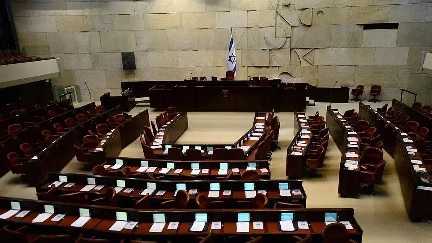
21 Feb 2023; MEMO: Israel's parliament, the Knesset, approved earlier today the first phase of the Netanyahu government's plan to weaken the powers of the judiciary. In a first reading, 63 MKs voted in favour and 47 voted against.
This plan aims to weaken the High Court so that the coalition government has full control over the composition of the Judicial Selection Committee, and ends the court's "interference" in politics. It is being pushed through the Knesset despite escalating mass protests in Tel Aviv as well as political opposition.
The government — described as the most extreme far-right in Israel's history — calls the plan "judicial reform". It refuses to put the legislation on hold and engage in dialogue to reach agreement on a plan mediated by Israeli President Isaac Herzog.
"It is an important night and a great day," said Prime Minister Benjamin Netanyahu after the Knesset vote. "Negotiations must be entered into without preconditions. I only know the preconditions from political circles. We are ready to enter into negotiations immediately, without conditions."
Justice Minister Yariv Levin, who is leading efforts to pass the government plan, claimed that, "The masses of citizens whose voices have not been heard in decades stand by the judiciary, which was blind to their needs, and who underestimated them."
Under the legislation, the High Court will be prohibited from interfering with basic laws, even those that the court deems to be unconstitutional and inconsistent with other laws. It also stipulates that judges nominated for the High Court be summoned to a hearing in the Constitution, Law and Judiciary Committee in the Knesset. The amendments also require the appointment of a female representative for each of the three authorities in the Judges Selection Committee.
The draft law will now be transferred for further deliberations in the Constitution, Law and Judiciary Committee, before it is put to a vote in a second and third readings.
Opinion polls show that most Israelis want to suspend or slow the process of enacting "reforms" to allow for dialogue with their critics, or to postpone the plan, which the opposition describes as a "constitutional and judicial coup." They insist that it harms the democratic balance of power in Israel, fosters corruption and will cause Israel's diplomatic isolation.




